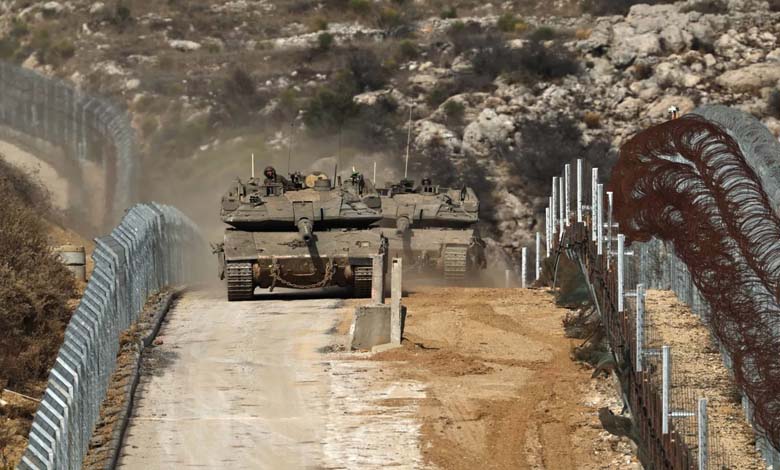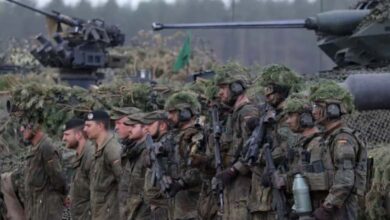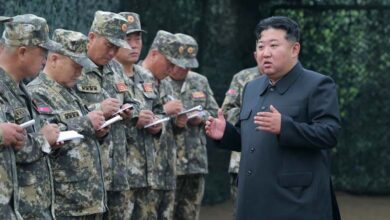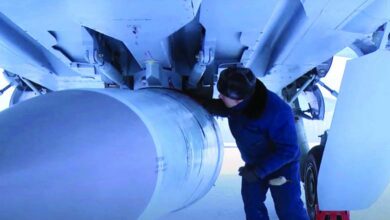Israel Prepares for Worst-Case Scenarios in Syria
Analysts believe that keeping Bashar al-Assad in power was the lesser evil for Benjamin Netanyahu.

Israel’s escalation against Syria, through strikes on military targets or taking control of the UN-supervised buffer zone in the Golan Heights, indicates that the state seeks to avoid the worst after al-Assad‘s regime fell.
-
The flying of Israeli jets very low over parts of Lebanon and blasts in Syria
-
Ukraine and Lebanon: Two Separate Wars That Changed Syria’s Fate
Yossi Mekelberg, a Middle East expert at Chatham House in London, stated, “The Israeli government is acting based on the worst-case scenarios.”
Analysts noted that keeping Bashar al-Assad in power was the lesser evil for Israeli Prime Minister Benjamin Netanyahu, despite his alliance with Iran—Israel’s arch-enemy—and Hezbollah. The primary fear was that his ouster could lead to chaos.
-
After Al-Assad’s Fall… Syria Closes Its Doors to the Houthis
-
Amid Regional Escalation: Experts Warn of the Return of Armed Groups and Political Islam Movements
Shortly after al-Assad‘s fall on Sunday, Israel carried out hundreds of air and sea strikes within 48 hours, claiming to have targeted “the majority of Syria’s strategic weapon stockpiles to prevent them from falling into terrorist hands.”
Israel occupied most of the Golan Heights during the June 1967 war. After the October 1973 war, a demilitarized buffer zone under UN control was established following a disengagement agreement in 1974. Israel annexed the occupied Golan Heights in 1981, a move not recognized internationally, except by the United States.
-
Hama Countryside: Massive Syrian Army Reinforcements and “Mass Fleeing” of Militants
-
Latest Developments on the Syrian Scene
Since that agreement, the Golan front remained calm from the Syrian side. Today, Israeli leaders fear chaos has taken hold and are acting accordingly.
On the day al-Assad fell, Netanyahu announced the 1974 agreement had collapsed and ordered his forces to control the buffer zone. The United States, Israel’s main ally, stated that Israel’s presence should be “temporary,” after the UN accused Israel of violating the 1974 ceasefire agreement.
-
Aleppo Clashes: Syrian Army “Cleanses” Several Areas and Prepares for a Counterattack
-
Meager Salaries and Stark Discrimination: Why Are Syrians Defecting from Iranian Militias?
Since then, the Israeli military has carried out hundreds of strikes on Syrian military assets, mainly targeting chemical weapons depots and air defenses to keep them out of fighters’ hands.
UN envoy Geir Pedersen has called for an immediate halt to Israeli strikes. Analyst Danny Citrinowicz from Tel Aviv’s Institute for National Security Studies predicts Israel will expand its strikes, saying, “Everything strategic in Syria—missiles, aircraft, and the Defense Ministry’s scientific research center—will be targeted.”
Israel also seeks to secure a weapons-free zone in southern Syria without a permanent Israeli presence, according to Defense Minister Yisrael Katz.
-
Israel Threatens Hezbollah Leaders: Defeating the Party with the Weapon of “Chaos”
-
Israel plans to expand its ground operations in southern Lebanon
In the long term, some Israeli analysts predict Syria will fragment into ethnic and religious groups. Security expert Eyal Benko suggests Israel could choose to work with groups like the Kurds or Druze.
However, military actions or favoring certain groups could harm future relations, warn experts.
Syria’s role as a bridge for Hezbollah’s weapons supply is significantly weakened. Without a Syria under Iranian influence, the resistance axis linking Iran, Hezbollah, and Iraqi militias would falter.
-
Gaza and Lebanon face the specter of death and famine… UN warnings and a deep humanitarian crisis
-
Under a Tight Siege, Israel Expands Its Attack in Northern Gaza amid Reports of Hamas Activity
Lastly, if Iran, now weakened, moves to develop a nuclear bomb, Israel might consider military actions, though some hope negotiations could emerge instead.












